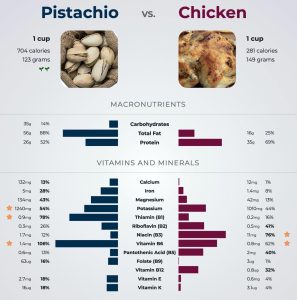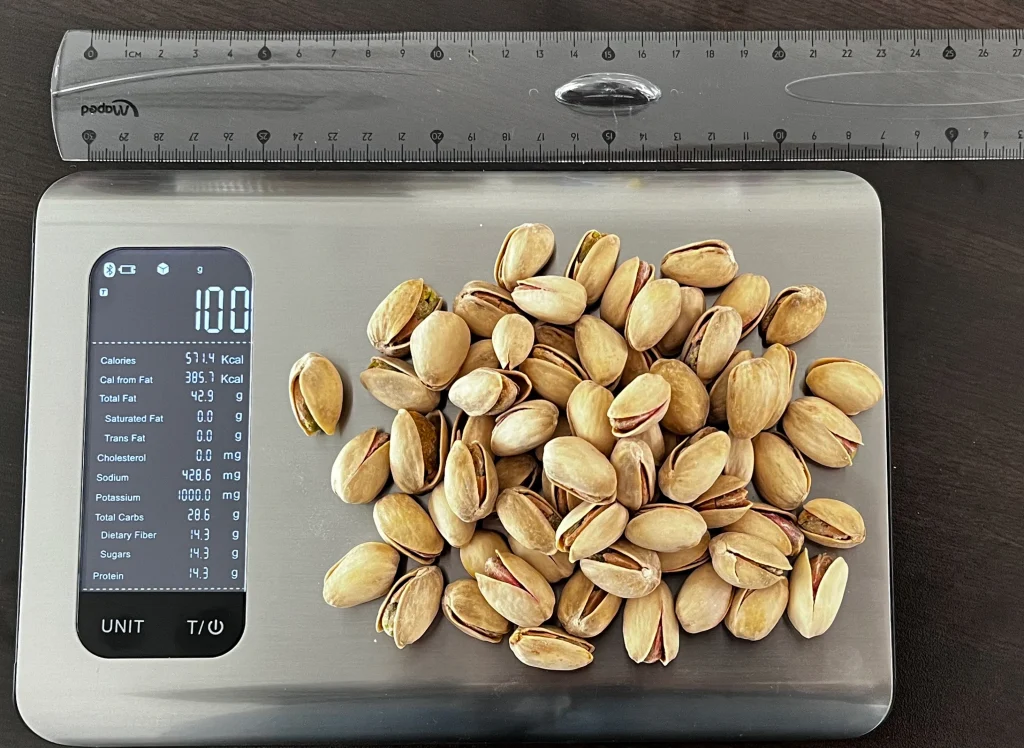
Nutrition
Raw pistachios are 4% water, 45% fat, 28% carbohydrates, and 20% protein. In a 100-gram reference amount, pistachios provide 2,351 kilojoules (562 kcal) of food energy and are a rich source (20% or more of the Daily Value or DV) of protein, dietary fiber, several dietary minerals, and the B vitamins thiamin (73% DV) and vitamin B6 (100% DV). Pistachios are a moderate source (10–19% DV) of riboflavin, vitamin B5, folate, vitamin E, and vitamin K .
The fat profile of raw pistachios consists mainly of monounsaturated fats and polyunsaturated fats, with a small amount of saturated fats. Saturated fatty acids include palmitic acid (10% of total) and stearic acid (2%) (table). Oleic acid is the most common monounsaturated fatty acid (52% of total fat). and linoleic acid, a polyunsaturated fatty acid, is 30% of total fat. Relative to other tree nuts, pistachios have a lower amount of fat and food energy, but higher amounts of potassium, vitamin K, γ-tocopherol, and certain phytochemicals such as carotenoids, and phytosterols.


